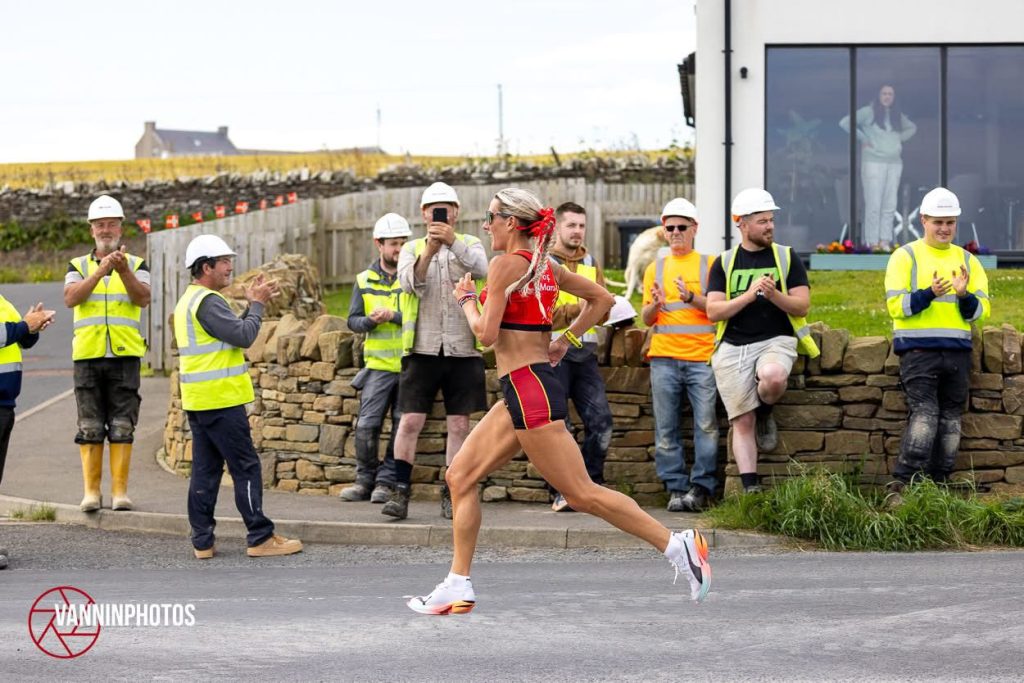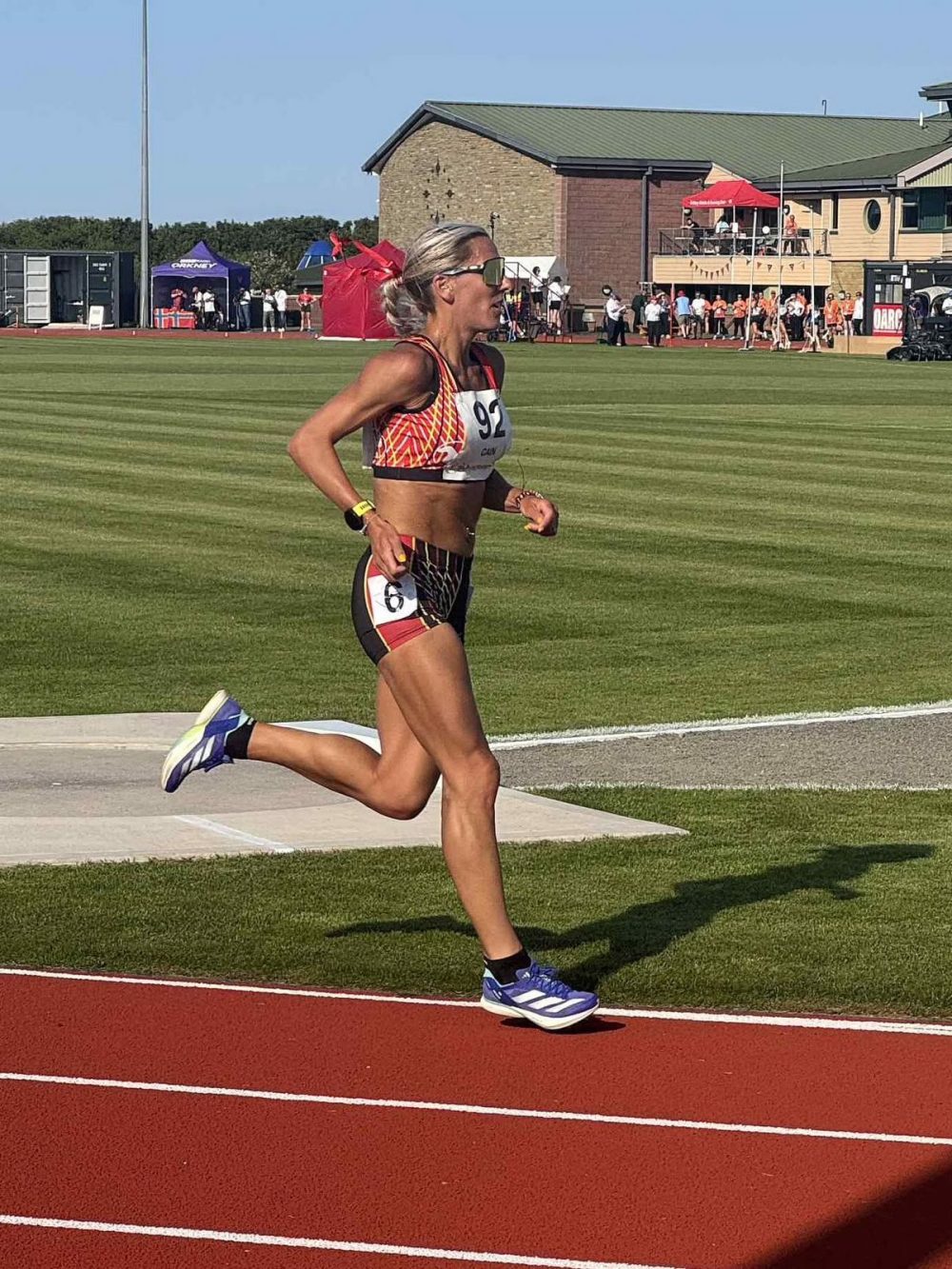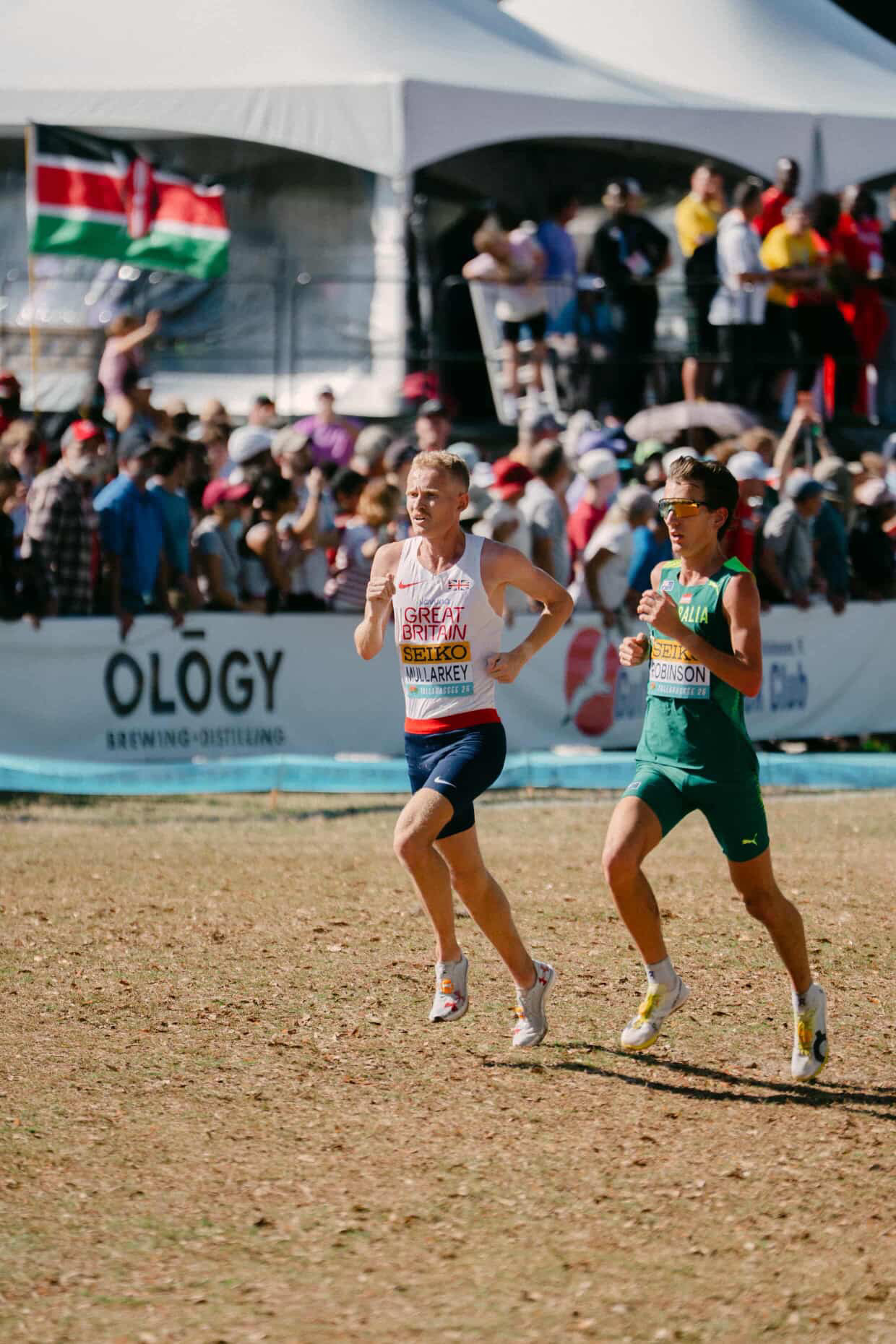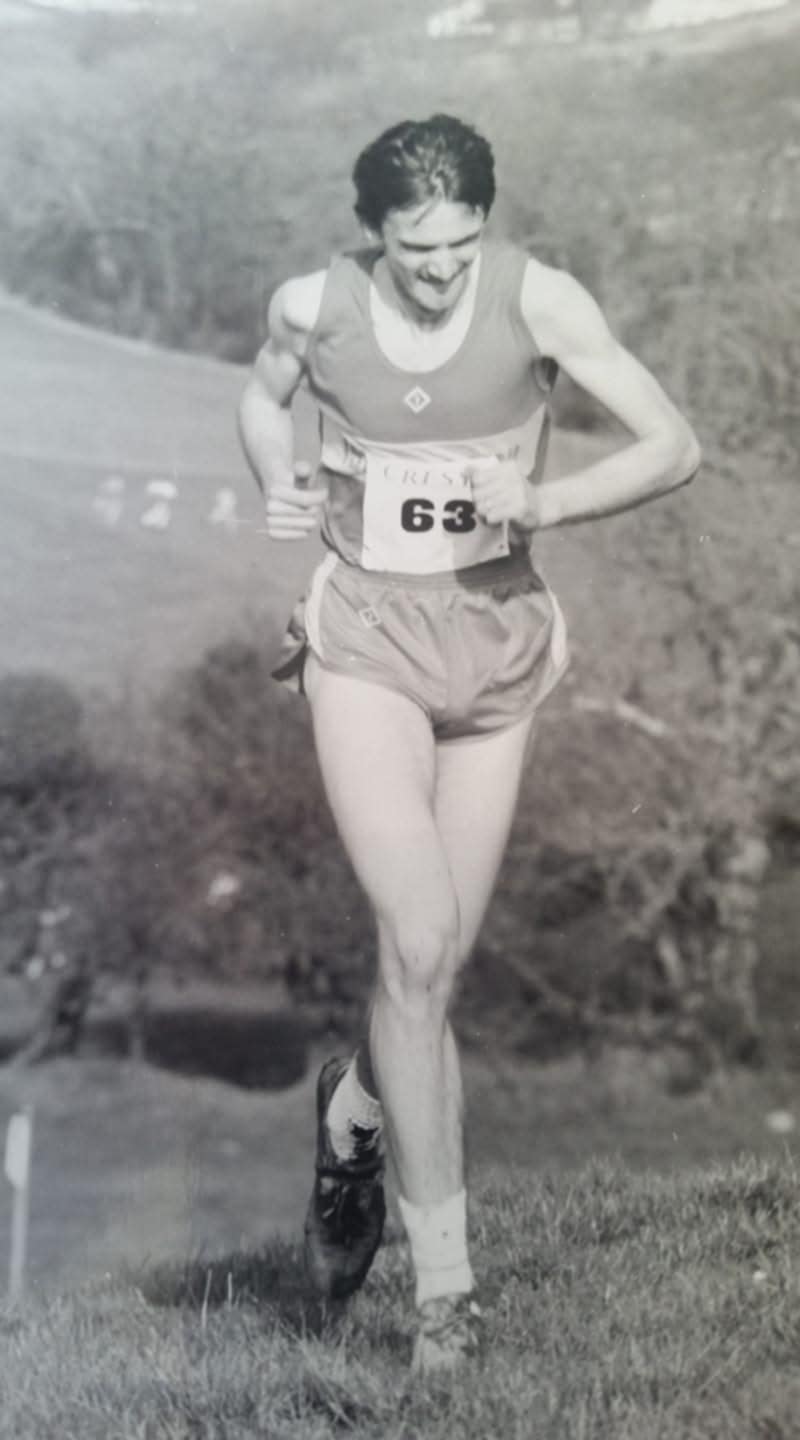Background & Inspiration
What first inspired you to take up running, and when did you realise you had the potential to compete at a high level?
I went on holiday to Madrid in 2022 and came across the Rock and Roll Half Marathon. Initially, this was a major inconvenience as many roads were closed. Within 10 minutes of watching, I told my partner that we should run a half marathon. To cut a long story short, we ended up running a full marathon in Granada, Spain, six months later, where I finished second overall and first female.
Despite the initial imposter syndrome of running a sub-3-hour marathon on my debut, I felt there could be some potential to compete at a higher level. But as someone very new to the sport, it has probably taken me the last three years to actually realise how much potential I have.
Were there any athletes or role models who shaped your journey in the sport?
Not at the start of my journey, as I knew absolutely nobody and nothing about running, apart from some of the well-known names you see on TV (such as Paula Radcliffe and Eliud Kipchoge). As I wanted to improve myself, I started to follow other current athletes on social media. I have loved watching Phily Bowden and following her journey. I admire her training programme and aspire to train in the same way.
Training & Preparation
What does a typical training week look like for you, both in terms of mileage and intensity?
In a marathon block my weekly mileage for 8–12 weeks would be roughly 100 miles or more. This would include 75% easy running, one track session, a tempo session, and a structured long run.
What role does strength training, mobility, or cross-training play in your routine?
I do daily mobility work, set by both my S&C coach and my physio, as well as two weights-based strength sessions per week. I do not currently cross-train, simply because I love the outdoors and I am fortunate enough to be able to run at high volume.
How do you find training at this level on the Isle of Man?
It can be difficult with varying conditions and a limited number of route options. I also do all my training solo, so having the right motivation is key.
Lifestyle & Balance
How do you balance training and racing with the rest of everyday life?
I decided to give up my corporate job of 19 years last year in order to focus on my running, so fortunately, I am able to balance recovery, training, and anything I want to do socially. Taking a step back and learning to rest more is a real challenge for me, but I don’t underestimate my recovery needs with the high mileage.
How important is sleep, nutrition, and recovery for maintaining consistency at your level?
In the last year, I have realised how important sleep is and what a difference getting eight hours or more each night has made to my performance. I have upskilled myself a lot on nutrition since getting injured (with a metatarsal stress fracture) in my first year of running. I have learnt just how important it is to make sure my body is always fuelled correctly for overall health and energy, which also helps with recovery. A weakness I am working on at the moment is making sure I take recovery days more seriously, rather than giving in to the temptation to run!
How do you balance mileage with recovery to avoid injury or burnout?
I split most days into double runs to reduce time on legs, which helps manage the risk of injury. I am very in tune with my body, and I make sure I fit in regular sports massages. I am very fortunate to be supported by the incredible team at Rehablab for physiotherapy and sports massage.
Mindset & Motivation
What motivates you most when training gets tough or results don’t quite go your way?
I feel that if you can motivate yourself to get through the hard sessions in training, then race day will be more enjoyable. There have been some races where the outcome hasn’t been what I wanted, but I think it’s really important not to dwell on those days, and instead to use them to learn. I always make sure I have another race in the diary, which helps.
How do you mentally prepare for big races? Do you use visualisation, routines, or specific strategies?
The hard work is done in training. I have a race plan. I check in with my coach regularly. I write things down to help get them out of my head. I look forward to race day and piecing all the hard work together. It’s just a long run on a new route surrounded by people!
What’s been the biggest challenge in your running career, and how did you overcome it?
That’s a good question – I had not really thought about that until now. One challenge has been ensuring that suitable training options are available when travelling, particularly in countries that may be less safe than the Isle of Man. To help with this, it’s important to plan and check routes in advance. For example, my partner cycled alongside me on a long run in South Africa.
Racing & Performance
Do you have a favourite distance to race, and if so, why?
Not really. I have recently learnt that I am not just a fan of the marathon – 5k and 10k have really grown on me this year. The half marathon has got to be up there too, because it feels nice only going half the distance (compared to the marathon). But it has to be said, there really is nothing like the marathon – I just love the build-up and it’s a great day out from start to finish.
How do you approach pacing and strategy for a marathon?
I work very closely with my coach and check in with him all the time, so every week we know the paces we are targeting during training. I have been quite inexperienced until now, so finding my target pace initially took some time, but now it is becoming more focused as I learn what I can sustain.
Can you share a memorable race experience – whether a breakthrough performance or a tough lesson learned?
It has to be the Valencia Marathon in December 2024, where I broke the Isle of Man record which had stood since 1993. I went into this race very relaxed and with no expectations, only six weeks after racing the Berlin Marathon. I felt great the whole way, and I couldn’t quite believe it when I crossed the finish line with a new PB and the national record. It has been my biggest motivation to keep trying to better myself ever since.
Community & Island Games
How special was it to represent the Isle of Man at your first Island Games in Orkney?
I was super proud to wear my Isle of Man vest for the first time in Orkney. It was a very special occasion, a real privilege, and I felt a huge sense of pride. I had no idea what to expect, but Orkney surpassed in all areas – the people, the weather, the atmosphere, as well as getting to know athletes from other nations.
After winning the 5000m, 10,000m, and Half Marathon, what does success mean to you personally, and to the local athletics community?
I was nervous going into the track races as I had never previously raced those distances on the track before the Games, and I really wanted to do my best for the Island and my teammates. I was more confident in the half, as that was my typical distance, but to win three golds was just amazing.
How do you see the Island Games in terms of inspiring the next generation of athletes here?
I would love to see other athletes aspiring to take to the roads and the track. I hope many people were able to watch the Games online or follow through social media, and that it will help encourage others to take up athletics as a sport. I think we are very lucky to have access to the Island Games, allowing the Isle of Man to compete on an international stage.
Do you feel there’s enough support and pathways for athletes on the Island to progress from grassroots to elite level?
We have some great facilities on the Island and many experienced and knowledgeable people in the sport. I think there is a lot of information available, but knowing where to go and who to contact can sometimes be challenging. The work that has gone into the IOMAA website has helped me, and local running clubs’ social media pages are always a good place to start. But I also think it is key to have a good coach who can point you in the right direction should you wish to progress with elite aspirations.
Looking Ahead
What are the next big goals you’re working towards?
I have the Chicago and Valencia Marathons later this year, where I hope to further improve my marathon PB. My coach sets me goals that scare me slightly, but they are not unrealistic, and it’s good to be challenged. I also want to improve over the shorter distances over the next 12 months, which should translate and help me with the marathons.
Long term, what ambitions do you have in the sport?
I have some punchy time goals which I would like to hit, but I guess for me, I never want to lose the enjoyment of running. I get many requests for help and advice, so one day I would love to coach and support others.
Anyone you would like to thank?
There are far too many to list, but in particular:
- Nick Bester, my coach
- Kate Parsons and the team at Rehablab for all their ongoing support
- My partner, friends, and family for everything they have done to help me on my journey
- Isle of Man Sport and Isle of Man Sport Aid for their support and advice




